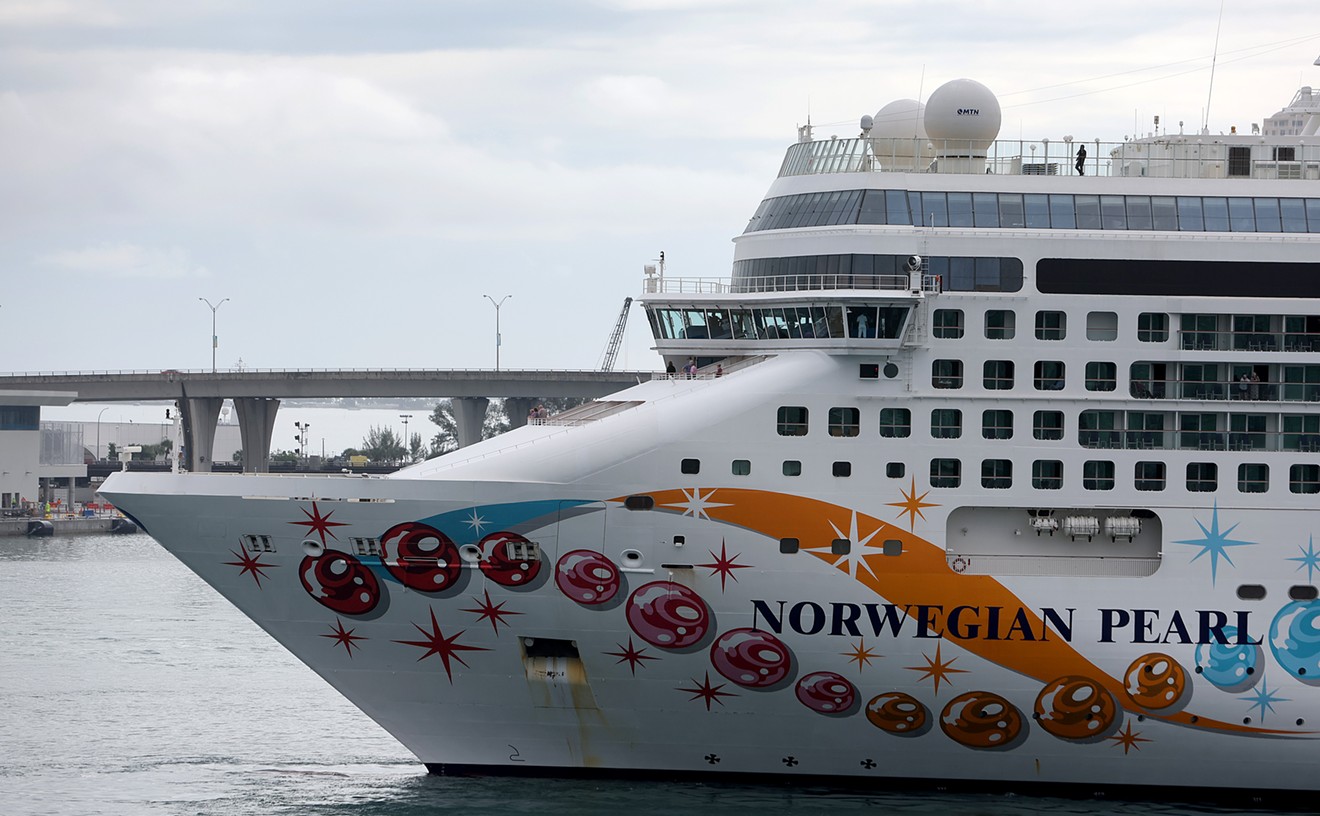On Tuesday, January 31, hundreds of cops forcibly shut down Occupy Miami's tent city at Government Center, ending nearly four months of protests.
But instead of heading home, dozens of protesters mysteriously migrated to a half-empty apartment building in Overtown. Apparently with the permission of the building's owner -- an enigmatic Occupy Miami member who has changed his name to Sr. Paz, or Mr. Peace -- they have taken the doors off of 26 units, spray-painted Anarchy signs on walls, and re-established "Peace City."
Rent-paying tenants, however, claim the protesters have only brought noise, drugs, and filth. "They poop on the walls!" says Sharene Odho. "It's like we live in a huge crack house now."
Update: Click through for a video report on the new camp and the residents' complaints.
Anywhere from 30 to 78 protesters now live in 540 NW Seventh Street. Odho and other tenants named a long list of complaints against their new, non-rent-paying neighbors.
First, there were, indeed, some rather large human paddies out front, including suspicious brown smudges on a wall.
Second, the removal of doors -- part of Occupy Miami's communal mindset -- had led to flooding, tenants said. Gloria Adams in Apartment 3 pointed to a giant recently patched hole in the ceiling where she said someone fell through because of the leaks.
Odho also claims that many of the protesters openly take drugs and are attracting local drug dealers.
Then there is the graffiti on several walls and several dozen young men and women hanging out on the staircases and balconies. Someone tagged the building opposite: "Occupy Tha Hood."
Some of the changes are more positive. One apartment has been relabeled the "Future Machine." It's clean and well kept, and the door is covered with peace signs, a "To-Do" list, announcements, and the phrase: "People Over Profits."
But residents are fed up. Jessy Lopez, a young single mother, said her young son was playing on his bicycle as two Occupy Miami members made out on a truck parked in the middle of the courtyard. When she asked them to quit the heavy petting, the guy told her to "fuck off."
"They are destroying our building," Odho adds. "We've lived in this
neighborhood our whole lives. We shouldn't have to deal with this."
John Noone, a clean-cut Occupy Miami member who runs his own pet-sitting business, was keen to point out that the encampment wasn't official. "Occupy Miami is in a transition phase right now," he says. "It's not like there is a full-on consensus on moving here."
Aria Anderson, a middle aged Italian woman dressed all in black, is the group's de facto leader. She quit her job as an Ocean Drive restaurant manager to take up the cause. Anderson says Occupy Miami has improved -- not destroyed -- the building by renovating empty, run-down apartments.
"The love that initially triggered us to make a stand against injustice is still driving us," she says. "This should be a place where people can come together and find solutions."
Perhaps the only thing that the Occupy Miami members and rent-paying-tenants agree on is that the chaotic situation rests on the shoulders of building's owner, Rodrigo Duque, who now calls himself Señor Paz.
"Well, I opened the doors of this place," Duque said in a phone interview. "Basically, all peaceful people are welcome."
"Yes there have been complaints," he admits. "There is some sort of resentment probably because the tenants feel like they are paying but the other people are not. The peaceful people are not paying because we don't have a place (since the eviction)."
He says he has a simple solution for the problems between occupiers and tenants.
"The tenants are welcome to stop paying if they open the doors of their apartments," Duque says. "They are paying for privacy. That's a choice that they will have to make."
Follow Miami New Times on Facebook and Twitter @MiamiNewTimes. Follow this journalist on Twitter @MikeMillerMiami.











